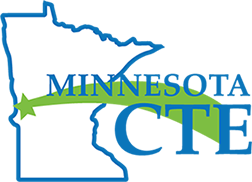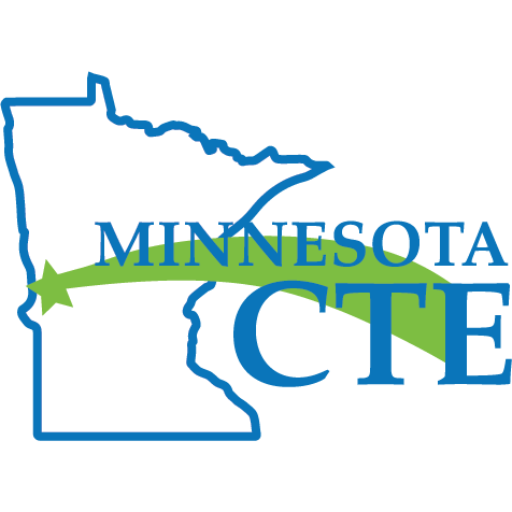Resources and guidance for Minnesota Construction, Manufacturing, and Transportation and STEM teachers and programs.
Resources to support Construction, Manufacturing, and Transportation and CTE STEM teachers from Minnesota CTE (MN CTE); Minnesota Department of Education (MDE); Minnesota Association for Career and Technical Education (MnACTE); Minnesota Technology and Engineering Educators Association (MTEEA); Minnesota SkillsUSA; and other state and national organizations.
General Resources
- Three Components of Construction, Manufacturing, and Transportation Education – MN CTE
- Construction, Manufacturing, and Transportation 101 – MN CTE
- Glossary of CTE Terms – MN CTE, MnACTE
- Advisory Committees 101 – MN CTE
- CTE Licensure 101 and Job Posting Guidance – MN CTE
- Minnesota Teach CTE Campaign – MN CTE and MnACTE
- Example District Contracts with Salary Progression Supportive of CTE – MN CTE
Teaching Resources
- CTE Curriculum Drive – MN CTE
- MN Association of Career & Tech. Educators (MnACTE), CTE Professional Org
- MN Technology & Engineering Educators Assn (MTEEA), STEM Professional Org
- MN Information & Technology Educators Assn (ITEM), STEM Professional Org
- Construction, Manufacturing, and Transportation State Safety Curriculum – Minnesota Dept of Ed (MDE)
- Construction, Manufacturing, and Transportation Safety Best Practice Guide – Virginia Dept of Ed
- Credit Equivalency – MACTA/Perkins Leaders
- Drone Information – Minnesota Dept of Ed (MDE)
- State-Recognized Programs of Study User Guide – MACTA/Perkins Leaders
WBL Resources
- Work-Based Learning 101 – MACTA/Perkins Leaders
- School-Based Enterprise Toolkit and FAQ – Iowa Dept of Ed
- Future Forward – SESC
- The Path to Career Success Worksheets – MN DEED
- Construction, Manufacturing, and Transportation Safety Best Practice Guide – Virginia Dept of Ed
SkillsUSA Resources
- Minnesota Skills USA
- SkillsUSA Resources – National SkillsUSA
- CTSO Advisory Toolbox Videos – Minnesota Dept of Ed (MDE)
Funding and Grants
- Grants for MN CTE Teachers – MN CTE/CTE TIP
- Loan Forgiveness (Shortage Areas) – MN Office of Higher Ed (OHE)
- CTE Revenue (i.e., Levy) – Minnesota Dept of Ed (MDE)
- CTE Revenue User Guide – Minnesota Dept of Ed (MDE)
- CTE Cooperative Funding – MN Service Cooperatives (MSC)
- CTE Perkins Funding – Minnesota State
- Perkins Eligibility – MACTA/Perkins Leaders
- Perkins Equipment Request – Minnesota Dept of Ed (MDE)
- Construction, Manufacturing, and Transportation Request Resource – Minnesota Dept of Ed (MDE)
- Perkins Program Income Encouraged – US Dept of Ed (ED)
Program Approval
- Construction, Manufacturing, and Transportation Program Approval Guide – Minnesota Dept of Ed (MDE)
- Construction, Manufacturing, and Transportation Program Approval Program Design – Minnesota Dept of Ed (MDE)
- Construction, Manufacturing, and Transportation Program Approval Example Evidence – Minnesota Dept of Ed (MDE)
- Program Approval Training Video, pt 1 – Overview (35 min 52 sec) – Minnesota Dept of Ed (MDE)
- Program Approval Training Video, pt 2 – Construction, Manufacturing, and Transportation (35 min 00 sec) – Minnesota Dept of Ed (MDE)
- Program Approval Application – Minnesota Dept of Ed (MDE), 03/2025
- Program Approval Table C (Course List) – Minnesota Dept of Ed (MDE), 05/2025
- Program Approval Database – Minnesota Dept of Ed (MDE), 05/2025

Standards
- Construction, Manufacturing, and Transportation State CTE Frameworks – MDE
- Construction, Manufacturing, and Transportation National Industry Standards
- Construction, Manufacturing, and Transportation National CTE Standards – Advance CTE

CTE Curriculum Drive
Free curriculum developed by Minnesota CTE teachers, for Minnesota CTE teachers.

Other Curricula
Add a resource:
To add a resource or link to this page, please send us a message.




